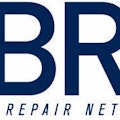I-CAR Canadian Town Hall addresses future of training
RELATED STORIES
HOFFMAN ESTATES, Ill. – The Inter-Industry Conference on Auto Collision Repair (I-CAR) held its Canadian Annual Meeting Oct. 17 in Montreal with an open inter-industry “Town Hall” meeting attended by 100 industry professionals, when the results of a market study sponsored by I-CAR and conducted by Creative Partners in Performance, Inc., of Toronto, were presented.
I-CAR International Board of Directors Chairman Robby Robbs led and moderated a panel of inter-industry thought-leaders, who considered the research findings and the underlying issues at hand.
• Roland Taube, of Akzo Nobel, a member of the I-CAR Education Foundation’s Board of Trustees, and the Chair of a Task Force established by the I-CAR International Board of Directors to formulate a recommendation to be presented to the Board on I-CAR’s future in Canada;
• Shirley Stobnicky, of Creative Partners in Performance Inc.;
• Dana Alexander, a collision repair facility owner, past member of the I-CAR Canada Board of Directors, and a member of the I-CAR Board’s Canadian Advisory Committee;
• Tony Canade, president of Assured Automotive, Chairman of the Canadian Collision Industry Forum, and a member of the I-CAR Board’s Canadian Advisory Committee;
• Dale Finch, Executive Director of the Automotive Retailers’ Association (ARA) in British Columbia, and Executive Vice-President of the National Automotive Trades Association of Canada (NATA);
• Keith Jones, of the Insurance Corporation of British Columbia (ICBC) and a member of the I-CAR Board’s Canadian Advisory Committee;
• Rémy Rousseau, the principal of Publications Rousseau;
• Darryl Simmons, the publisher of Collision Repair magazine, related bi-lingual publication supplements, and repair industry Web sites;
• Rich Zamperin, the Canadian Director of Auto and Property Claims, for the Allstate Canada group of companies and a member of the I-CAR Board’s Canadian Advisory Committee.
I-CAR says the attendees participated actively and interacted frequently with the panel members and one another in the discussion of the issues.
Stobnicky presented the research findings and positioned four alternatives for I-CAR’s future in Canada for consideration:
• I-CAR should remain in Canada as it is currently structured – as a “region” of I-CAR International’s U.S.-based operation, but with an improved infrastructure;
• A Canadian I-CAR entity should be established, for the express and exclusive purpose of licensing I-CAR’s products and providing I-CAR training and related services to address the Canadian market;
• A Canadian entity should be established to address the broader training needs of the Canadian auto collision repair inter-industry, and pursue the licensing of I-CAR curriculum as one of a broader portfolio of multiple training offerings;
• I-CAR should withdraw from the marketplace.
In the discussion of how I-CAR might approach the option of I-CAR continuing to operate in its current model, but with a more significant investment in infrastructure to meet market expectations, Robbs asked I-CAR President and CEO John Edelen to comment as to the feasibility of this option. The exchange elicited a very candid comment from Edelen on the ability of I-CAR International to fund this kind of activity in Canada.
“When you consider an appropriate allocation of corporate, general and administrative expense, the Canadian operation has been significantly subsidized by U.S. operations over the past number of years. Given our losses in (the 2007 fiscal year), and our efforts to regain profitability in a ‘down market,’ it is not realistic to expect the current level of subsidy to be sustained, let alone investing further in a model which is declining,” says Edelen.
“The core issue at hand,” says Robbs, “is that based on the trend of declining participation in I-CAR training, the Board has questioned the wisdom of continuing down this path.” Robbs observes that, “the success of this structure in any market is determined by the level of engagement by industry leaders at a national, regional and local level and across industry segments. Unfortunately, this is something which has been sadly lacking in Canada for some time and clearly represents a need for change.”
After the “Town Hall” meeting, a number of attendees reflected that they had not fully appreciated the financial implications inherent in the question of I-CAR’s Canadian operation and its recent performance, and that these insights were an important factor in elevating the need for the Canadian inter-industry to come together and to develop alternatives and options for the future.
About the Author
